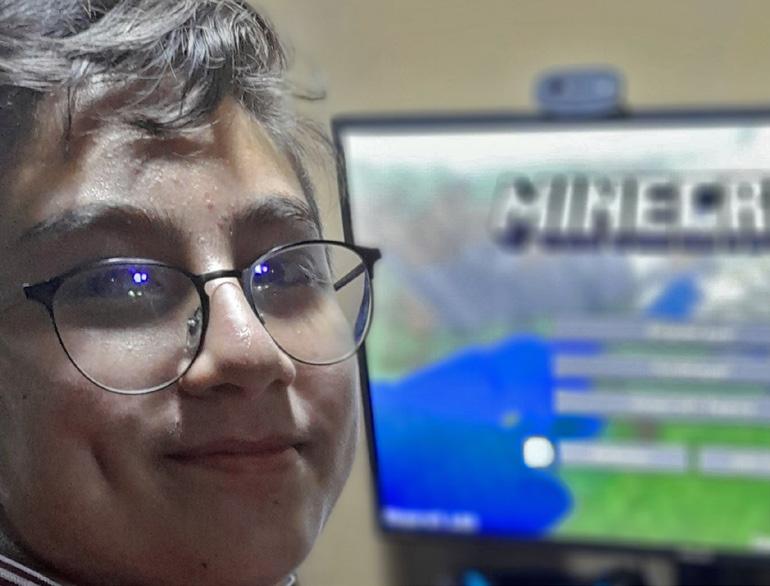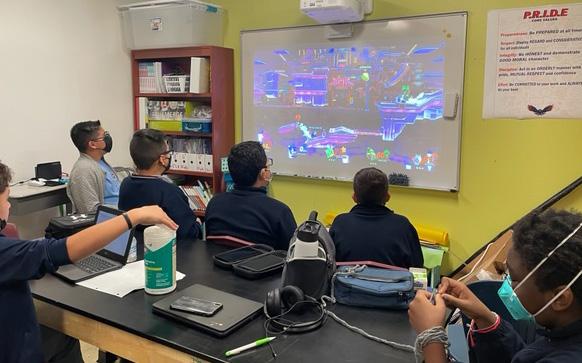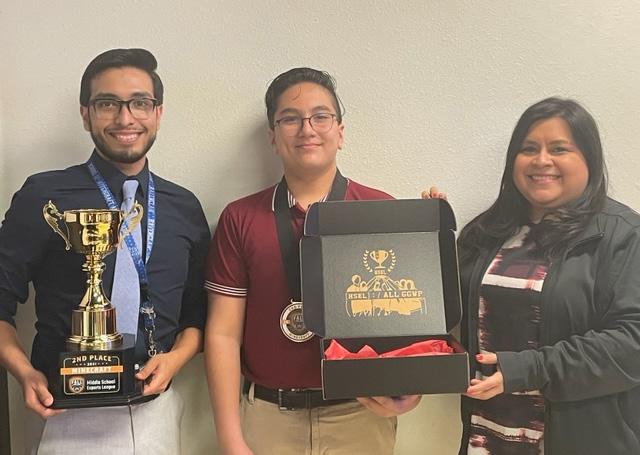
4 minute read
Harmony Esports Program Taking Off
ESPORTS IS A WIN
Harmony Students Learn Teamwork and More Through Competitive Gaming Clubs by Marcy Andrade

When video games first arrived in U.S. homes in the 1970s and ‘80s, many parents worried that they would be a distraction that interfered with their child’s learning.
But now more than 40 years later, Harmony Public Schools has become a state and national leader in using video games to not only keep students engaged with learning, but connect them to a multitude of potential college and career options.
Esports, which stands for electronic sports, is competitive gameplay that takes gaming to another level. Esports was launched at Harmony by Albert Demarest, a high school English teacher at Harmony Science Academy-Pflugerville in 2016. At the time, it was a single-campus club, for which Demarest served as sponsor.
However, when the COVID-19 pandemic hit in 2020, other Harmony campuses soon turned to Demarest’s model as a way to keep students connected with one another and with their academics while learning away from school. “Clubs and sports shut down (during the pandemic) and our kids were home. They were learning online and we all had a little more time than usual, so it became a good time to propose making it happen for others throughout Harmony,” said Mr. Demarest.
Fast forward to 2022 and the rise of esports at Harmony has been a whirlwind for Demarest, along with Mehmet Emir, Harmony’s Director of Virtual Learning and Engagement. The two worked diligently to write the policies to standardize and implement esports for Harmony students in elementary, middle and high school. Because of their work, today there are 40 campuses who have embraced the program.
Harmony Science Academy – Laredo is one campus going all-in on esports.
The club is sponsored by Public Relations & Communications Coordinator Nicole Romanos and math teacher Pedro Alaniz Harmony Science Academy-Laredo. Romanos – highly organized and methodical – and Alaniz – a motivated gamer who knows the “language and who kids easily







relate to – make the perfect pair for the growing group of gamers in Laredo.
The two were initially surprised when they had more than 100 sixth, seventh and eighth graders show up to be part of the after-school club. Romanos said they hosted tournament-style elimination tryouts to whittle down the number. They ended up with a great group of 30, and recently gained national recognition when one of their eighth-grade students placed second in a national tournament.
“I love gaming, but I also saw (serving as a sponsor) as an opportunity to bring my knowledge and experience to this group of young minds and relate to them,” said Alaniz. “I see it as an opportunity to make nonmath connections with kids – many who I don’t have for class – get to know them, share some strategy with them, have fun and allow them to increase their independence, too.”
From Pflugerville, Demarest said he has enjoyed being on the ground floor of the esports program for Harmony, and watching it flourish in places like Laredo and elsewhere. He also continues to see its potential for growth. He is an advocate for the program because he truly sees the benefits that esports can provide to scholars.
Mr. Demarest was instrumental in forging a partnership with Concordia University in Austin. The university’s esports program contact and Demarest schedule friendly practice sessions, and organize scrimmage games that ultimately serve to sharpen their gaming skills, as well as to expose them to the institution. For some of the students, esports could be what helps them find their path to college at Concordia or elsewhere through scholarships and gaming-related coursework.
“We have some talented gamers throughout Harmony. We’ve had at least 10 gamers place in various tournaments and competitions over the last few years, so building relationships with universities is helpful in many ways,” Demarest said. “We hope to continue evolving our partnerships throughout the state as we did with Concordia. Esports programs are competitive and colleges and universities offer competitive scholarships, and it’s also a way to help build a bridge for our students to university life.”










